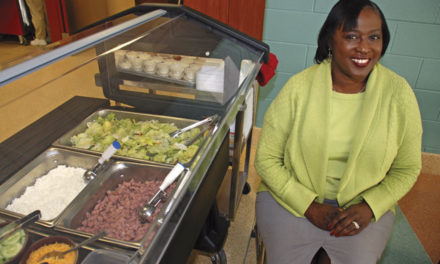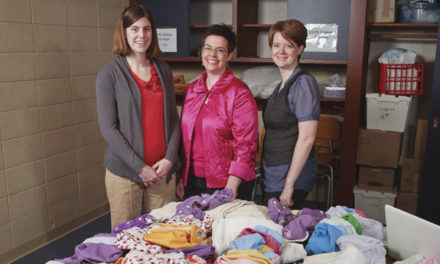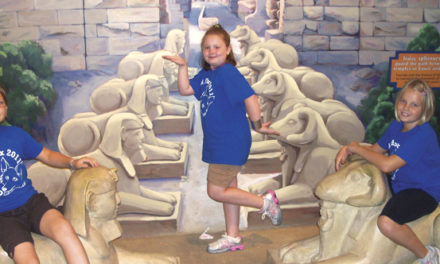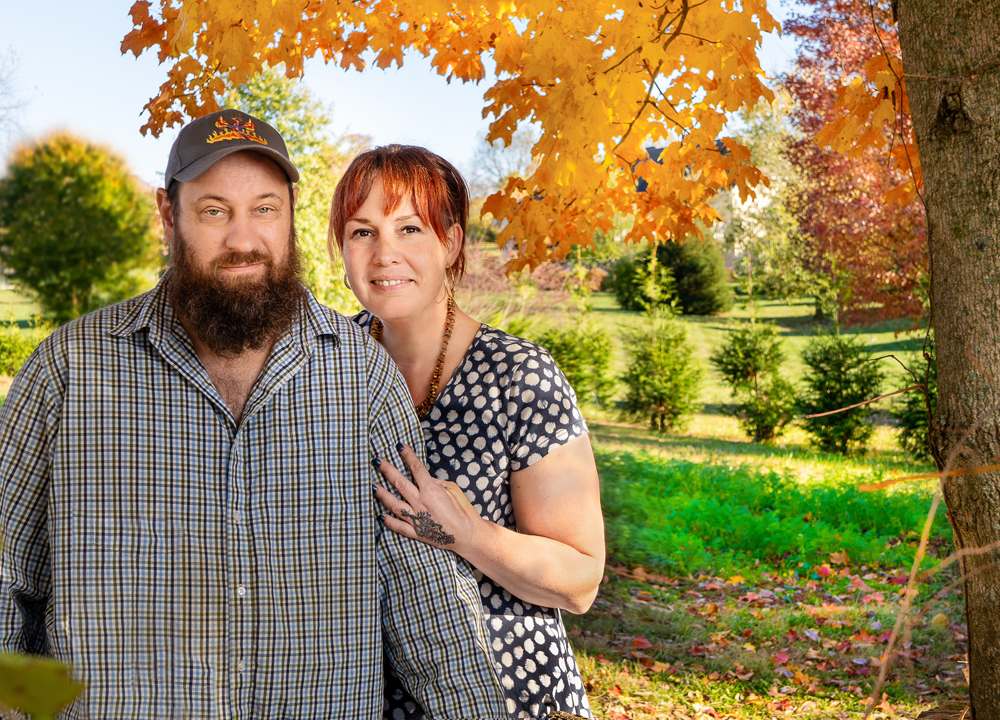
by JULIA VALLIANT
After working other people’s farms for a dozen years, Grant Pershing, 44, was ready to start farming for himself. Unfortunately, finding a bank that was willing to loan him the money wasn’t so easy. “I was a pretty poor risk, so I could either find a dilapidated house with enough land or a nice house with no land,” Pershing says. “When it came down to buying something, it just wasn’t going to happen.”
John Byers and Pershing met years ago through mutual friends at the Bloomington Community Farmers’ Market. Later they both served on the Local Growers’ Guild board. Byers knew Pershing was looking for a way to farm, so in 2015 he suggested an unusual arrangement: Pershing would lease Byers’ 3.5-acre yard—a typical field of sod—and turn it into his farm.
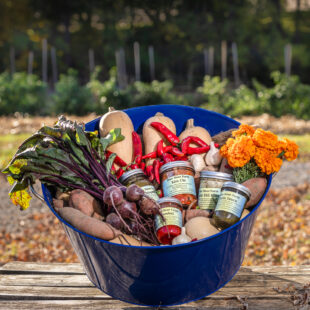
“I had a good feeling about Grant,” Byers says. “And what’s the worst that can happen? If it doesn’t work out for him, I just plant grass back there.”
Pershing’s Blue Hour Farm now sells vegetables, herbs, small fruits, and flowers at the Bloomington Community Farmers’ Market and through Community Supported Agriculture memberships, and runs a farm stand during the spring, summer, and fall. In the winter, he sells fermented vegetables at the Bloomington Winter Farmers’ Market.
Since beginning the endeavor, Pershing and his wife, Molly LeCount; Byers; and farmhands have built two high-tunnel hoop houses, a barn, berms and swales to collect rainwater, and have planted an arborvitae hedge that serves as a windbreak.
Byers says he’s proud food is being grown on his land, and that it’s not traveling more than a few miles to feed people.
“The quality of the produce he’s raising is amazing,” Byers says. “He seemed like he was a good guy, and he’s proven such. It’s a total win-win situation.”
For more information, visit bluehourfarm.com.
Julia Valliant is a public health researcher with the Sustainable Food Systems Science initiative, The Ostrom Workshop, at Indiana University. Her research group collects stories of landowners who are helping unrelated new farmers gain access to farmland. Contact Valliant at jdv@indiana.edu.


